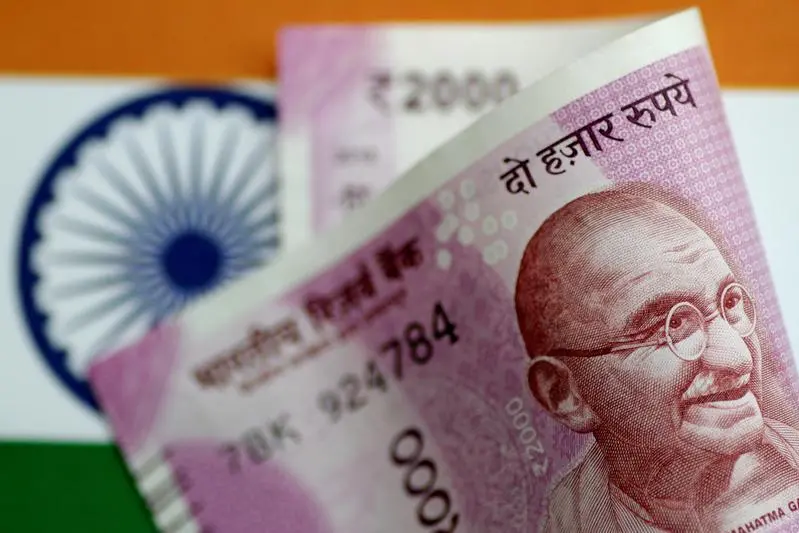PHOTO
The Indian rupee and other emerging Asian currencies could fall further against the US dollar this week amid a weak appetite for risk, analysts told Zawya.
The Asian currency fell 24 paise to 74.79 against the greenback on Tuesday, as escalating fears of Russia invading Ukraine, coupled with a surge in oil prices, weakened investor sentiment.
Tensions intensified in Europe this week after Russian president Vladimir Putin ordered troops into Ukraine. Brent crude has also inched closer to the $100-mark, trading as much as $99.50 a barrel on Tuesday.
“The Indian rupee declined against the US dollar amid a weak risk appetite as tensions escalated in eastern Europe. Sustained foreign fund outflows from India and a lacklustre trend in Indian equities weighed on investor sentiment… Elevated crude prices are hurting the oil-importing country’s currency,” Arun Leslie John, chief market analyst at Century Financial, told Zawya.
Looking forward, John said it is likely that the rupee, as well as its Asian peers, could fall further.
“Emerging Asian currencies could continue to weaken due to worsening tensions… Putin ordered troops into separatist regions of eastern Ukraine, suggesting a long-feared invasion was possibly underway. Oil prices are touching an eight-year high as Russia is a major supplier of oil to the US,” he said.
“Russian sanctions would be put in place, potentially reducing the available oil supply in a tight market. Most Asian countries are oil-importing nations, and surging oil prices would pressurise their currencies.”
Current account deficit
Besides oil prices and escalating tensions in eastern Europe, the widening current account deficit in India is also impacting the rupee.
“The current account deficit is currently accounting an important metric for gauging a country’s economic health and stability. Even as all the economies in the world are going through an economic slump, a disproportionate trade deficit is resulting in creating a weak rupee value against the US dollar,” said Mohammed Shaheen, CEO of Seven Capital.
However, Shaheen said the managed Chinese yuan could “lend some stability” or ease pressure on Asian emerging market currencies.
“Any depreciation in the yuan will likely require some easing in energy prices in China while the likes of the Korean won and Taiwan dollar appear quite vulnerable to the rise in global inflation and tightening cycles,” he said.
(Reporting by Cleofe Maceda; editing by Mily Chakrabarty)
Disclaimer: This article is provided for informational purposes only. The content does not provide tax, legal or investment advice or opinion regarding the suitability, value or profitability of any particular security, portfolio or investment strategy. Read our full disclaimer policy here.
© ZAWYA 2022





















